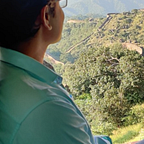Below mentioned are the shenanigans of my experience as a rural development fellow in the Youth For India Fellowship with BAIF Research and Development Foundation at tribal villages of Betul district of Madhya Pradesh.
Maximize Community Participation: In case of technological intervention many times outsiders (solution creator) missed the important things in community perspective. The villagers are the only people who actually working in the field, they know about problem well. So their involvement in solution design process plays vital role; it makes it more appropriate, simpler & ultimately sustainable. It improves level of acceptability, responsibility and ultimately ownership. For better impact in future youth involvement at every stage of development activity will be important.
- Knowledge transfer in a simple way: It’s a bidirectional thing.
On the ground, I observed that many interventions failed somewhere because of community lacking in knowledge and that’s why in ownership. The knowledge gap and because of that gaps between ‘actual need’ & ‘technology development’ is increasing. They are totally dependent on capitalist-market value chain system.To transfer the basic knowledge regarding intervention, make them aware about market linkages in case of technical things is very important factor in sustainability concern.With the help video, pamphlet, diagram it’s easy to connect with people. The cost benefits calculations makes discussion interesting and further steps came out of it.
- Innovation vs. Grassroots Innovation — Indigenous knowledge adaption: In the field I observed many of the farmers have adopted very innovative solution to problem faced by them; they are real innovators. These interventions are really very simple, feasible, cheaper and sustainable.
Yes, there is need of improvement in some of that, finding more like this and intervene modern technology. When I compare the developed or developing countries manufacturing sector with this; I realized that there is need of work/improvement in “Mercedes-Benz” or any car/technology and in a same or deeper way there is need in technology development for rural India too.
So as an Engineer what is my role? Where is my need?
Fellowship journey helping me to gain more clarity on this question. The pieces of experience & inequality observed in rural India always motivating me work with & for underprivileged rural area.
- The alternative energy application should reach out in tribal or rural area without saying about climate change things. When I see from rural community perspective; cost benefit should be the prime objective. They couldn’t be able to invest in renewable energy application for environmental concern. In such a condition along with technological innovation bringing financial Innovation with innovative social mobilizationis very important.I strike the real need to identify climate smart technologies integration with agriculture &livelihood based intervention.
- “Seeing is Believing”: This is one of the effective approaches of community awareness. I observed that community does not take active participation unless & until they see actual result in their own area, their demographic & climatic condition. In solar pump case, I observed that they are very curious about working, they don’t faith on words or speech, they faith on actual intervention result. ‘Action always speaks louder than words.’
In such a demonstrative intervention precision & continuous follow up, feedback and improvement are necessary.
- Simpler way of living: In this developing era tribes’ are living graceful community living. Tribal people and their connection with nature, the ecosystem with which they are living really intrigued me in deep. That one year experience raised question of materialistic life, lifestyle verse life skill I front of me. I am finding deeper meaning in simpler, nature friendly living.
Matching rural youth aspiration: In a village I observed the gap between youth aspiration and their financial & skill ability; willingness to work. Youth are not interested in agriculture and other side there is no employability opportunity. These are all structural problems I think it is necessary to clarify the difference between ‘need’ & ‘wants’. The livelihood intervention should propose, strengthen and empowerment feeling should transfer in rural youth.
- In fellowship journey I gained useful insights on rural issues from BAIF field staff, villager’s, technical partner, YFI co-fellows, government officials etc.
- Documentation & Systematic study: The proper documentation brings confidence in action. It is important to baseline study; it helps in planning and measuring variance in plan & actual work. This works as constructive feedback and helps to make concrete action plan. An incremental stage in work brings positive change.
— — — — — — — — — — — — — — — END — — — — — — — — — — — — —
